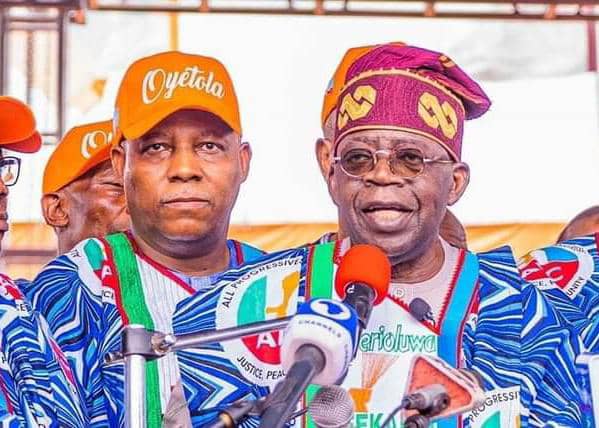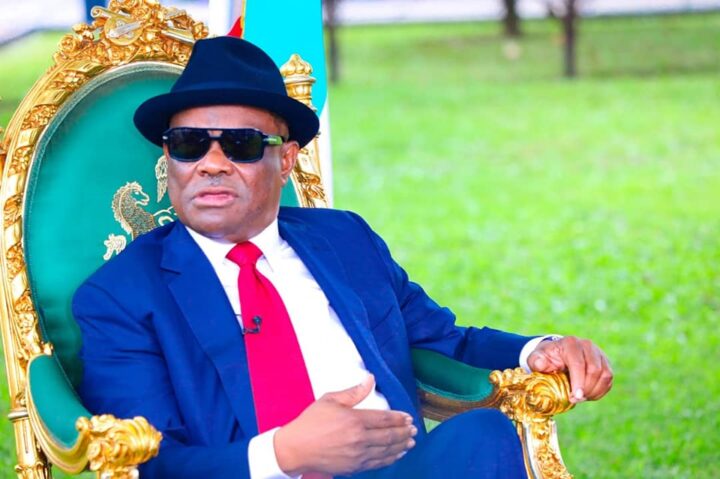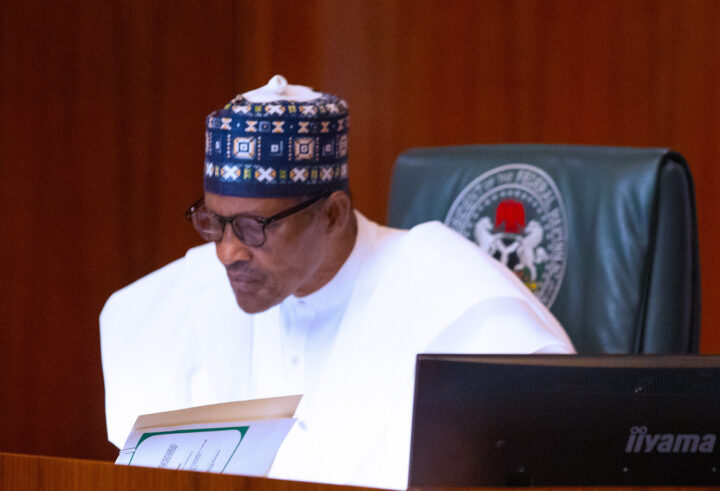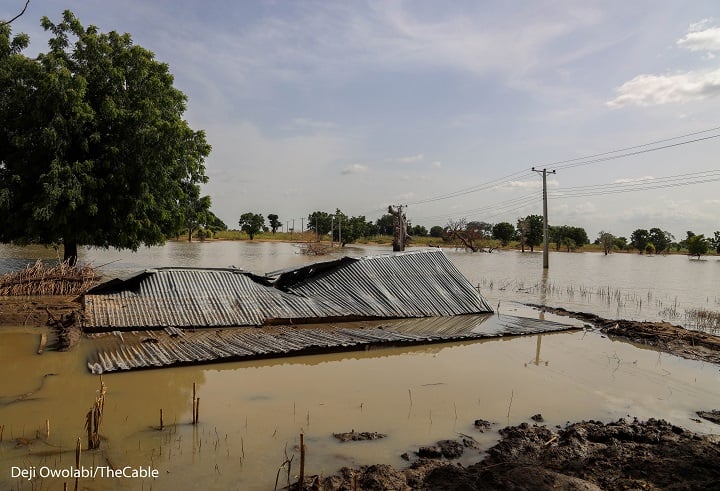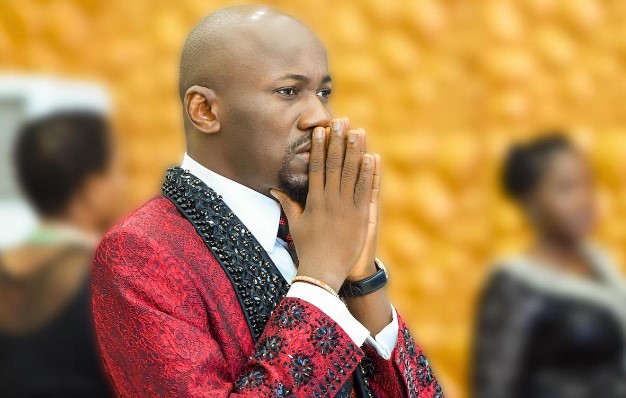Things are getting clearer now. The man whom many had disparaged, who has attracted so much hate from some quarters for no reason, of whom so many bad things have been said – totally unjustified – is becoming the clear choice for 2023. I signed on much earlier because I would rather someone who has laboured hard and planned over decades, than someone who woke up from a nightmare and decides to go about recounting Nigeria’s laundry list of woes with hardly any intelligible solutions and no deep thinking behind his statements. It is what it is.
Professor Stefan Dercon’s book is still fresh in my memory. Titled ‘Gambling on Development – Why Some Nations Win and Others Lose’, the good professor — who had had a distinguished career in diplomacy for the United Kingdom, focused on Africa – says that there are no silver bullets in the game of socioeconomic development and so nations must have to try their lucks in intelligent ways. He gave the example of China, where the elites in the single political party (Chinese Communist Party – CCP) had to gamble on shelving their own personal interests for proving that their usually criticised approach to politics could work for the people. 500 million have been lifted from poverty and China is a superpower. An elite consensus, holds Dercon, is imperative in achieving economic development. He however warns that no one should think the best approaches cannot fail and a good government gets disgraced out of office.
This forms one of my three “killer apps” for which I believe Bola Tinubu is the man for the times. Elite consensus. The other two are his preferment for a social democratic approach to governance. The third is the need for a seamless transition at this critical juncture of Nigeria’s development. We could then look at some of the promises in his campaign manifesto document which was launched on Friday, October 21, 2022, amidst much fanfare.
I write this from Ethiopia’s Bole Airport, which I found has greatly improved into a very modern and competitive airport since the last time I was here perhaps five years ago. The Ethiopians improved greatly through COVID-19 and have further consolidated their niche – aviation in Africa and tourism. Not that they manufacture airplanes but they have mastered the logistics around planes and also got their own people to do the servicing and maintenance. They have thus conquered Africa in this regard. I wondered if Nigeria could find a niche of its own and do something great with itself. Ethiopians also have tribal issues and their constitution, which gives any constituent part of the country the right to opt-out, is presently giving the country so many problems (advocates of the same system in Nigeria should take note). We may not be at war, but too many years of lack of cooperation have opened this country up to all sorts of issues. We have become persona non grata in many places across the world. Even in Ethiopia. Some Nigerians made it their duty to damage the image of the country abroad over the decades, in the name of making money. We must tackle our problems.
Advertisement
Anyhow, let me dive into the three killer apps:
Elite consensus
Professor Dercon, the Oxford scholar, has only provided some further assurance about the criticality of elite consensus from his intellectual perch. It is what we already knew. Vice President Osinbajo has mentioned it more than twice in official speeches. The issue is how we move forward on it. Who can drive elite consensus? Nigeria has all the money and resources it requires to move forward in leaps. The snag is that our elites seem not totally sold on the idea of a greater country where things work and where they can enjoy what they have. Some of them prefer to be oppressors in the middle of mass penury. I have taken time to study American democracy and federalism in some detail and can say authoritatively that whatever we see here today as corruption also happened in the USA. Democracy being expensive, and the presidential system being an insatiable monster, corruption still exists in the USA. I recall that the moment Muammar Gaddafi was killed, the Americans – and even the Brits – could hardly disguise that they were in that country to loot resources. So, in the USA it may be difficult to merely dip hands into public coffers, but there are other ways by which political corruption is being perpetuated.
Advertisement
I, therefore, urge those savage critics of everything in Nigeria to read up on what some of the countries they ‘japa’ to have been through. They may realise that we needn’t destroy our country. They may realise that there is no need to talk about Nigeria in that final, nihilistic fashion like there was no hope at all. There is hope. I mean, the USA has gone through 46 presidents and not all of them were on point. Some were outright disasters. Now, one is not saying we need 46 presidents or 200 years to make progress. Indeed the examples of America are there for us to hasten our approach. But we must banish hubris. We should be humble in our ambitions while working hard. That sounds paradoxical but is a fact. No, we aren’t smarter than the Americans. We should understand that we will have to stoop low in humility in order to make that much-needed progress. For Nigeria, development could be much faster, but it starts with the mind. A humble mind will see just how far the developed countries have gone and realise that we too have to do some things organically, not merely binge on what other people have created and innovated.
Bola Tinubu is a student of American politics. As I studied the history of how the Americans evolved, I realised that Tinubu has been in the library before me. From his use of notoriety (any publicity is good publicity) to his succession planning, and being a boss, I have a lot of respect for this super-strategic planner.
I, therefore, believe that Bola Tinubu is well-positioned to cause an elite consensus – a long-awaited one – in Nigeria if he becomes president. The elites in Nigeria have great respect for him. Some may be afraid of what he could do if he becomes president. You either love or hate Tinubu. What you cannot do is ignore him. He is the kind of boss who can call a big meeting and lay down the rules for everybody to follow. Better still, as we live in a democracy, he can explain through anecdotes and very colorful adages to Nigerian elites about which way we should all now go. I’m afraid his chief opponents do not have the political and intellectual weight to try any such thing without looking ridiculous. Bola is in the pole position.
Social democracy
Advertisement
The unravelling of Liz Truss’ government in the UK is enough for anyone to have seen the folly of market fundamentalism – which are systems being peddled by Tinubu’s co-contestants. An article in the Guardian UK wondered if Truss had finally killed the idea of the market being sufficient to allocate resources, forever. Whereas some people are cautious in advancing such ideas, Truss and her associates were arrogant, naïve, and almost condescending in their indoctrination. And the market, which they claimed to love and work for, promptly punished their untowardness. From the UK experience, we should have seen once and for all that right-thinking folks understand the need for responsible governance upon which government is built.
Perhaps the two other of Tinubu’s opponents are stuck in their ways or they have simply not allowed their minds to open up to reality. Perhaps they have some constituencies which they hope to impress. Only someone like Adewole Adebayo of the SDP dares to speak robustly and not continually shove some market down the throats of our people. Adebayo even claims that the government has been lying to us about the kind of abundance that we already have. Even I will not go that far. But Tinubu, as we will see in a quick analysis of his manifesto, and as is clear in his governance of Lagos state, is a social democrat. And that is who we need at this moment – someone who tends towards the kind of governance we have seen in all the countries that make some sense from Europe, through the USA (even though they like to act as if they don’t make provisions for their poor), to China (which started out as a communist country, but is today capitalist but with adequate provisions made for public goods and social welfare and even a robust plan to totally eradicate poverty through what is called targeted poverty alleviation). Tinubu, among the lot that are vying today, has that perfect combination of maturity, vision, experience, and mindset.
Seamless transition
Nigerians must choose whether they want to spend the next four years at least, bellyaching and complaining about how things are bad, or whether they want to really get on with the work of economic development, bearing in mind that we will all have to make sacrifices. It is the sacrifice part of it that may be very problematic. Most thinkers believe that indeed Nigerians are not yet ready for change. We love to just have a government up there to rail about and this attitude – if we are to believe the early missionaries who came to Africa, including colonial administrators – has been with us for long. Prosperity is a mindset thing and has little to do with having the biggest houses or the fattest bank accounts. But we misunderstand it here, and if we were called to contribute towards really making society a better place, most of us will resist. I will write a different article about the kind of sacrifices that the incoming government may have to make. And Bola Tinubu has promised a few of those in his manifesto.
Advertisement
So, if we want a seamless transition, we should think about Tinubu. For one, he will have no excuses. He cannot sit and complain about how Buhari has ruined the economy or anything of that sort – even though in retrospect yes, the Buhari government had a bad start, took some very terrible decisions, but also laid the grounds for success for its successor. Tinubu cannot also try to portray Buhari in a bad light since they belong to the same party, and he is alleged to be one of Buhari’s chief sponsors. He has also openly accepted to take on the assets and liabilities of Buhari’s government, which is the honorable thing to do.
If what we want is a visionary and leader of men and women, someone with enough clout to get anyone into his government to add value, then we need not waste time with most of the other candidates who will come in and whine and act confused. From what I’ve seen about what other people around the world are doing, Nigeria needs to move super-fast. Tinubu has committed to a 10% year-on-year GDP growth, which is remarkable. With all the huff and puff of most of the other candidates, none has been able to step out with such brave vision, and a commitment to hard work. That is what we’re talking about! Only Tinubu has shown strong, out-of-the-box thinking, not a regurgitation of the dictates of multilateral bodies.
Advertisement
What the manifesto says
I should round up with some remarkable snippets from the manifesto. The chief one for me is the commitment to 10% GDP growth. As a fact, I know that a Tinubu government can do better than that and from what I’ve seen so far, Tinubu will astound this country with his team. And there will be no gloating. Buhari tried his best but asides from initial missteps, in the beginning, he was plagued by ill luck (crude price crashes and the terrible COVID-19). COVID-19 was especially a devastating phenomenon, which has seen the backs of many governments around the world. For Nigeria, it resulted in a large exposure of the federal government to the central bank. We just had to survive. And the government did the needful. We hope that we don’t get another devastating – even if somehow admixed with fear and some contrivance – phenomenon like Covid. In fact, the entire world will resist. So, the next few years for Nigeria should be about work, productivity, innovation, and reorganisation.
Advertisement
Of course, Tinubu has to be careful about fifth columnists. It is not everyone carrying a Nigerian passport that wants to see the nation emerge into any degree of greatness. Many Nigerians have, over the years, deliberately gone around damaging the name and goodwill of the country so long as they can get some pecuniary advantage. There are also many in government who are agents of foreign countries and intelligence services, whose main roles are to help maximise advantage to their paying countries and minimise or even zero out advantage or gain to Nigeria. Government is often a terrible affair. Tinubu knows this already but will need help, for all of our sakes. We must not assume that we are all gearing up to make Nigeria great. Some of the people who will lose the elections have also vowed to cause trouble and some will ensure they make some parts of Nigeria ungovernable. It is what it is.
But based on the manifesto, there is hope. One serious critic wrote: “I dare say that the renewed hope manifesto of Bola Ahmed Tinbu, is an A+ comprehensive political statement of intent and roadmap. I struggle to isolate a single item in it that can be executed by a government led and staffed by people lacking in or disdainful of commitment to excellence, diligence, and meritocracy. If we are interested in the future of our grandchildren in Nigeria, all of us must read, analyse and critique it before we cast our votes on February 25, 2023. I think, at least, on this score other presidential aspirants must up their game. If 25% of the content is implemented successfully in four years, we’d be having a different country than what we have now. The mind that came up with this masterpiece of a manifesto is worth some shi-shi”.
Advertisement
Another serious critic, Kalu Aja, in a series of tweets, had to eventually commend the thinking behind the manifesto, giving one confidence that much is achievable. A famous, no-nonsense critic, and influential thought leader, Ademola Henry Adigun, shared these critical but surprisingly encouraging remarks on his Facebook page: “I have read the APC manifesto. A good read. Clear on deliverables. Good on managing the FX challenge. Great on growing the oil sector. Weak in addressing security… more theoretical than practical. Great on simplicity and syntax. Not clear on tackling corruption. If APC wins and it is implemented, there might be some gains for the economy”.
A sampling of provisions in the manifesto include:
- Creation of ABATTS (anti-terrorist battalions). Something akin to American SWATs but focused on this terrorist challenge that must be tackled. The Buhari government has made a dent in many places. The finishing touches must now be added.
- Mass employment of youths in security, environment, education, and health sectors, while reorganising the public service for better efficiency (I reckon this means rationalising the service by transferring many to where they will actually have work to do, not merely pushing files around). Our public service is largely not on ground yet.
- Transfer of VIP protection to NSCDC. (I personally believe VIPs should pay officially into the security fund for this privilege. Good money)
- Better fiscal responsibility and a new revenue allocation formula to give states and local governments a higher cut.
- Refocus budget away from only crude oil. (I believe this means that stronger revenue assumptions will be made – especially the contributions of our government-owned enterprises and the non-oil sector). Also, the manifesto states that deficit limits will be set but profound expenditure budgets will be drawn, which will drive the economy.
- De-dollarisation of the economic base. Stoppage of the idea that without crude oil sales, the government cannot spend. (Part of our current challenge is the over-concentration on crude oil proceeds despite the volatility of that sector and its shrinking impact on our economy due to oil theft. I reckon that life is telling Nigeria to move on).
- Hiring millions of unemployed people to modernize (and maintain) infrastructure
- Luxury taxes to reduce import dependency
- Pursuit of a stronger and more stable exchange rate. (I think someone here realizes the truism in Stalin and Thatcher’s statement – “to destroy a country, you first debauch its currency”)
- Limiting foreign currency debts by contracting such only for projects with good cash flows
- Major and minor industrial hubs in each political zone
- Banks to engage in consumer loans or pay penalties to CBN.
- Review the land use act. Rationalise the land conveyance process
- Increase cultivated arable land from 35% to 65% through massive land clearing
- Commodity boards/commodity exchanges for the crops in which we are doing great — cocoa, cashew, sesame, soya, cassava, yam, palm oil, rubber, okra, etc
- Storage and small processing facilities in farming areas to reduce/eliminate post-harvest losses
- Universities and polytechnics to be centres of research to bring more power to rural areas through innovation
- State governments to build metro services linking national rail lines
- Embark on serious dredging of strategic inland waterways. This will further open up the transport sector but also reduce incidences of very bad flooding as is presently being witnessed
- Reintroduce history, civics, and indigenous languages to schools
- Reposition student loans and institute a more cost-reflective tuition fee. Also, establish a special education fund consisting of zero-coupon bonds. Private investors will help fund universities
- Establishment of media city and provision of specific infrastructure for the entertainment industry
- 20% of political appointments are for Nigerians below 40 years old. Plus at least three cabinet positions
- Aim to increase women’s participation in governmental positions to 35%
- Cash transfers to poor families to be tied to the compulsory education of their children
As the critic opined, just a quarter of these and we will have altered something profoundly in Nigeria. Nigeria may be about to turn the corner if our luck holds for a bit. I believe strongly that we can achieve more than 50% of the promises. Let us forgive ourselves in this country. There is time to resolve all grievances. We must recover our country together, and our lost image.
Views expressed by contributors are strictly personal and not of TheCable.
Add a comment

